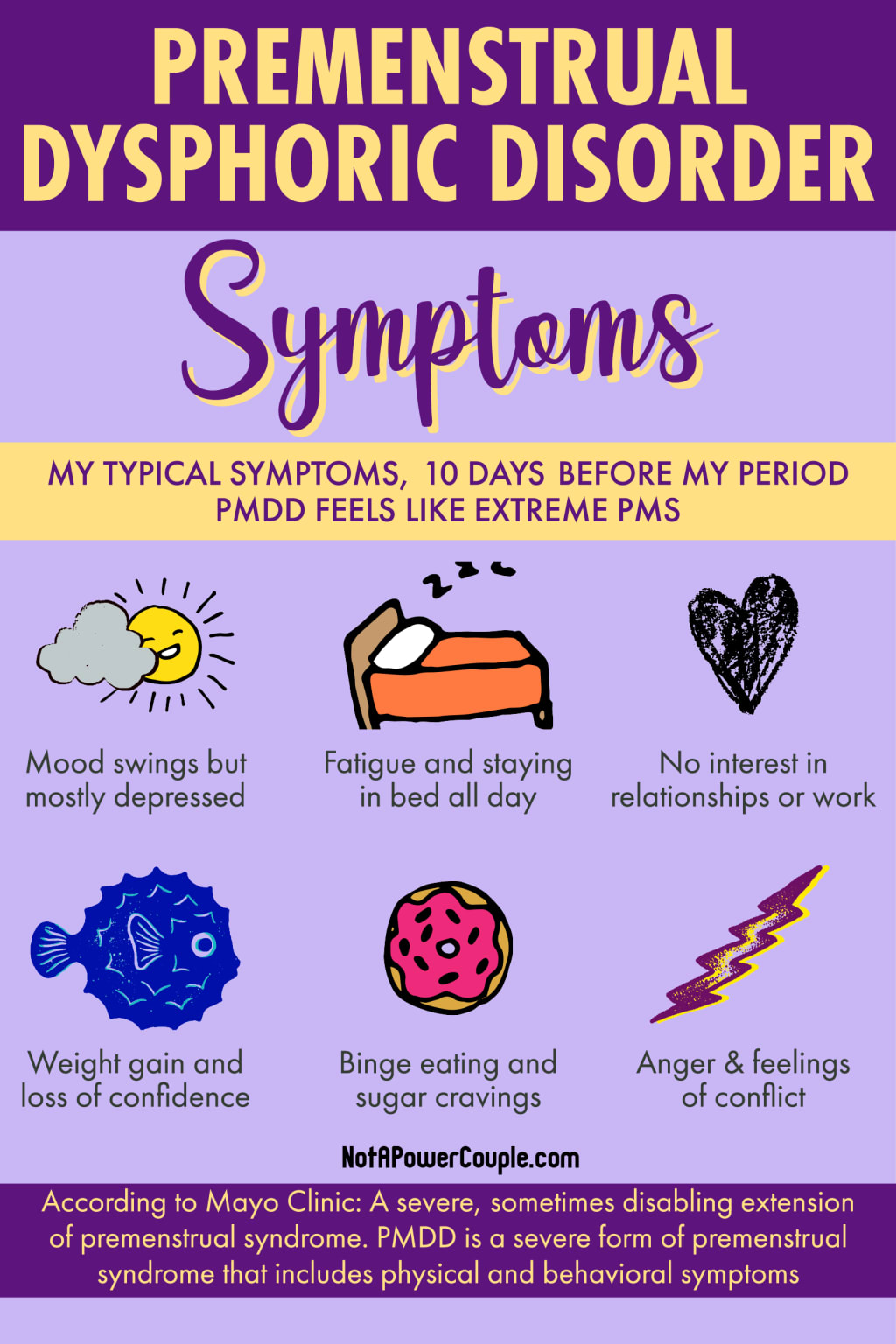Managing PMDD: Coping Strategies for Women and Their Loved Ones
Managing PMDD: Coping Strategies for Women and Their Loved Ones

Premenstrual Dysphoric Disorder (PMDD) is a severe and debilitating form of premenstrual syndrome (PMS) that affects a significant number of women. It is estimated that up to 8% of women who menstruate experience PMDD, which can lead to severe emotional and physical symptoms that can disrupt their daily lives. PMDD can cause a range of symptoms, including irritability, anxiety, mood swings, depression, and physical discomfort.
PMDD can be challenging to manage, but there are ways to cope with its symptoms effectively. In this article, we will discuss various coping strategies that women with PMDD and their loved ones can use to manage this condition.
Recognize the Symptoms
The first step in managing PMDD is to recognize the symptoms. PMDD symptoms typically begin a week or two before the onset of menstruation and usually improve within a few days after the start of the period. Common symptoms of PMDD include:
- Irritability
- Anxiety
- Mood swings
- Depression
- Fatigue
- Headaches
- Bloating
- Breast tenderness
- Insomnia
- Difficulty concentrating
If you experience these symptoms regularly, it is essential to speak with your doctor to confirm that you have PMDD and to rule out other conditions that may cause similar symptoms.
Keep a Symptom Diary
Keeping a symptom diary can help you track your symptoms, identify triggers, and plan for the onset of symptoms. A symptom diary can also help you communicate more effectively with your doctor about your symptoms and the effectiveness of your treatment.
In your symptom diary, you can record the following:
- Date and time of the symptoms
- Duration and intensity of the symptoms
- Triggers or factors that may have contributed to the symptoms
- Any medications or treatments you used to manage the symptoms
- Any changes in your diet, exercise routine, or sleep patterns
By keeping a symptom diary, you can develop a better understanding of your symptoms and identify patterns that can help you plan for future episodes.
Exercise Regularly
Regular exercise can help reduce the severity and frequency of PMDD symptoms. Exercise releases endorphins, which are natural mood boosters that can help reduce anxiety and depression. Exercise can also help improve sleep quality, reduce bloating, and increase energy levels.
The type and duration of exercise can vary depending on individual preferences and fitness levels. However, it is recommended to aim for at least 30 minutes of moderate-intensity exercise most days of the week.
Maintain a Healthy Diet
Maintaining a healthy and balanced diet can help manage PMDD symptoms. Eating a diet that is high in complex carbohydrates and low in fat and sugar can help stabilize mood and reduce irritability. Consuming foods that are high in magnesium, calcium, and vitamin B6 can also help reduce PMS symptoms.
It is also essential to avoid certain foods and beverages that can exacerbate PMDD symptoms, such as caffeine, alcohol, and processed foods.
Manage Stress
Stress can exacerbate PMDD symptoms, so managing stress is an essential part of managing this condition. There are many ways to manage stress, including:
- Meditation and deep breathing exercises
- Yoga or tai chi
- Getting enough sleep
- Spending time outdoors
- Engaging in hobbies and activities that you enjoy
- Talking to a trusted friend or therapist
Use Medications and Supplements
Medications and supplements can be effective in managing PMDD symptoms. Antidepressants, such as selective serotonin reuptake inhibitors (SSRIs), can help reduce mood swings, anxiety, and depression. Hormonal contraceptives can also help regulate hormones and reduce PMDD symptoms.
Supplements such as vitamin B6, calcium, and magnesium can also be effective in reducing PMDD symptoms. It is essential to speak with your doctor before starting any medication or supplement to ensure they are safe and appropriate for you.
Seek Support
Managing PMDD can be challenging, so seeking support from loved ones and healthcare professionals is crucial. Talking to a friend or family member about your symptoms can help you feel less alone and provide emotional support. Seeking help from a therapist or support group can also be beneficial in managing PMDD symptoms and improving overall mental health.
For loved ones of those with PMDD, it is essential to offer support and understanding. PMDD can be challenging to manage, and loved ones may need to be patient and understanding during episodes of mood swings, irritability, and other symptoms.
If you have a loved one who has been diagnosed with PMDD, there are several things you can do to help them manage their symptoms effectively. Here are some tips on how to help someone with PMDD:
Be Understanding
PMDD can cause severe emotional and physical symptoms that can disrupt daily life. It is essential to be understanding and patient with your loved one during episodes of mood swings, irritability, and other symptoms. Avoid judging or criticizing your loved one for their symptoms, as this can make the condition worse.
Educate Yourself
Educating yourself about PMDD can help you understand the condition and how it affects your loved one. It can also help you offer better support and communicate more effectively with your loved one's healthcare provider.
Offer Practical Support
Offering practical support can help your loved one manage their symptoms effectively. This may include helping with household chores, running errands, or offering to take care of children during episodes of severe symptoms.
Encourage Self-Care
Encouraging your loved one to practice self-care can help them manage PMDD symptoms. This may include encouraging them to exercise regularly, eat a healthy diet, and engage in activities they enjoy.
Be There for Them
Being there for your loved one can make a significant difference in managing PMDD symptoms. Listening to their concerns, offering emotional support, and showing that you care can help them feel less alone and improve their overall mental health.
Conclusion
Managing PMDD can be challenging, but there are ways to cope effectively with this condition. Recognizing the symptoms, keeping a symptom diary, exercising regularly, maintaining a healthy diet, managing stress, and seeking support are all effective strategies for managing PMDD. For loved ones of those with PMDD, it is essential to offer understanding, educate yourself about the condition, offer practical support, encourage self-care, and be there for your loved one. By working together, those with PMDD and their loved ones can manage this condition and improve their overall quality of life.





Comments
There are no comments for this story
Be the first to respond and start the conversation.